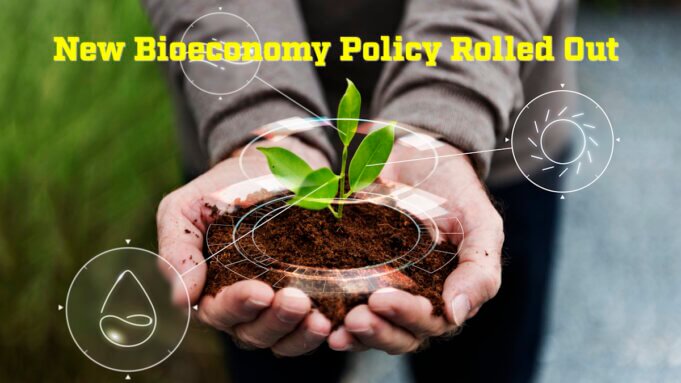Union Minister Dr Jitendra Singh recently said that the newly introduced Bioeconomy policy is poised to position India as a global leader in the coming years. During a press briefing on the Union Cabinet’s decision regarding the BioE3 (Biotechnology for Economy, Employment, and Environment) Policy, Dr Singh highlighted the transformative impact this policy is expected to have on India’s manufacturing sector.
He pointed out that India is on the verge of becoming a global biotech powerhouse, largely due to Prime Minister Narendra Modi’s forward-looking approach. Dr Singh noted that PM Modi is likely to be recognized globally for spearheading a biotech revolution that promises significant economic, innovative, employment, and environmental advancements.
Dr. Singh praised the Prime Minister’s visionary leadership in crafting a policy aimed at transitioning from traditional consumption-driven practices to advanced regenerative bio-manufacturing. This shift marks a major step towards creating a cleaner, greener, and more prosperous India.
Reflecting on the rapid growth of India’s bioeconomy, Dr Singh noted that it has expanded dramatically, growing from $10 billion in 2014 to over $130 billion by 2024, with expectations to reach $300 billion by 2030. He emphasized that this growth reflects India’s strong economic momentum and that the BioE3 Policy will further propel India into a leading role in the fourth industrial revolution.
The BioE3 Policy, according to Dr Singh, is set to drive growth by significantly contributing to the ‘Make in India’ initiative through the development of bio-based products with minimal environmental impact. The policy is designed to address pressing global challenges such as climate change and the depletion of non-renewable resources by promoting a shift from chemical-based industries to sustainable bio-based models, fostering a circular bioeconomy, achieving net-zero carbon emissions through innovative waste management, and encouraging the creation of bio-based products that support job creation.
Dr Singh outlined several key features of the policy, including its support for entrepreneurship in various sectors such as bio-based chemicals, smart proteins, precision biotherapeutics, climate-resilient agriculture, and carbon capture technologies. The policy also envisions the establishment of advanced bio-manufacturing facilities, bio-foundry clusters, and Bio-AI hubs.
He further elaborated on the significance of these bio-manufacturing hubs, which will serve as centralized facilities essential for the production, development, and commercialization of bio-based products. These hubs will play a crucial role in bridging the gap between laboratory-scale research and large-scale commercial manufacturing, facilitating collaboration among startups, SMEs, and established manufacturers. Dr Singh specifically mentioned that these hubs would be instrumental in the large-scale production of items such as mRNA-based vaccines and proteins.
Additionally, Dr Singh expressed confidence that the Bio-AI hubs would be at the forefront of innovation by integrating AI to analyse large-scale biological data, leading to breakthroughs in gene therapies and food processing technologies. He also highlighted the policy’s focus on ethical biosafety and the alignment of India’s biotech standards with international regulations, which is vital for global regulatory harmonisation.
Dr Singh emphasised the policy’s potential to create substantial employment opportunities, particularly in tier-II and tier-III cities, where bio-manufacturing hubs are planned to be established. These hubs will utilize local biomass resources, thereby driving economic development in these regions.
In conclusion, Dr Singh reiterated that the BioE3 Policy is a strategic investment in India’s economy, environment, and employment sectors, aligning with the nation’s vision of becoming a ‘Viksit Bharat’ (Developed India). This policy sets a new benchmark for how effective science-driven policies can contribute to national development and sustainability.
Cover Photo: www.freepik.com











